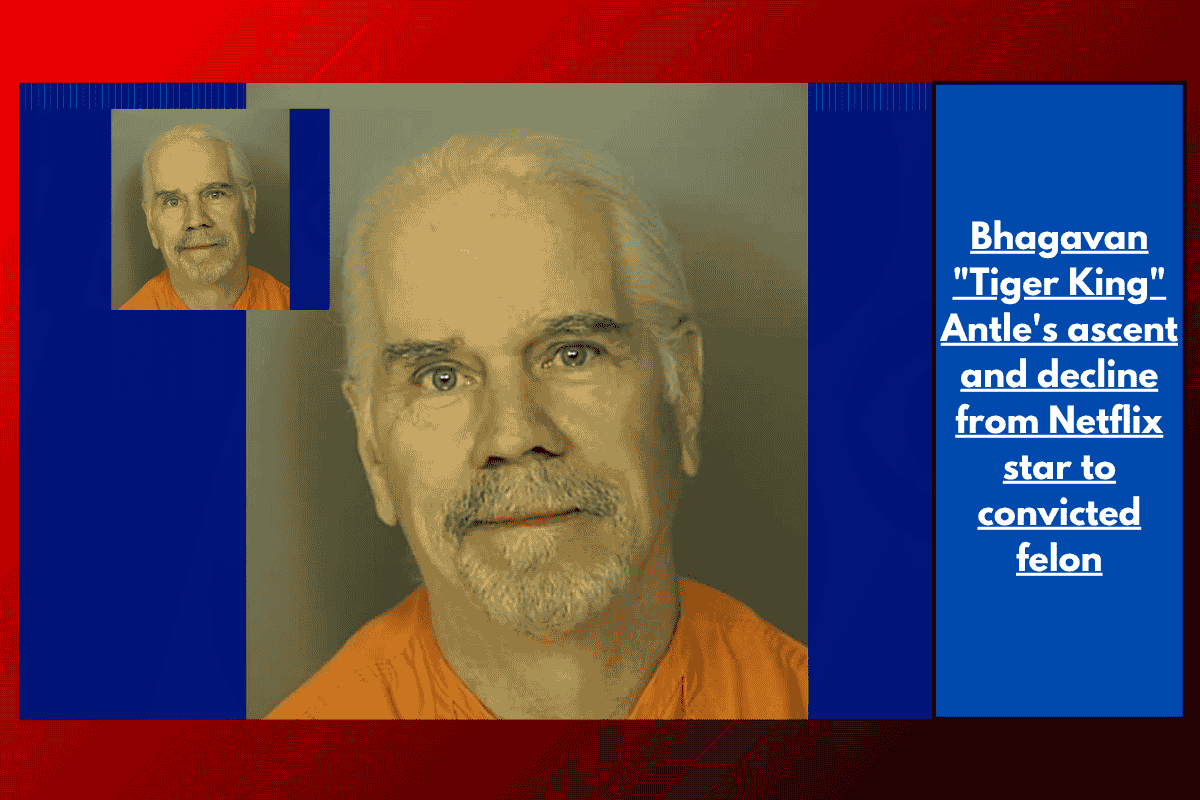Horry County, S.C. — Once a star in the hit Netflix series Tiger King, Bhagavan “Doc” Antle now finds himself facing a different type of attention—one from lawyers and judges. On Tuesday, Antle will appear before U.S. District Court Judge Joseph Dawson III in Charleston for a sentencing hearing, following his guilty plea in November 2023. The charges stem from federal conspiracy and money laundering allegations.
Antle, the founder of Myrtle Beach Safari, admitted to violating The Lacey Act, a law that prohibits the trafficking of illegally taken wildlife, including species protected under federal laws. Antle’s actions, dating back to 2018, involved trafficking endangered species such as cheetahs, tigers, and chimpanzees, which he sold or purchased through illegal means.
Sentencing and Potential Penalties
Antle is facing a maximum penalty of five years in prison, a fine up to $250,000, and three years of supervised release for each charge. His guilty plea follows years of legal battles and public controversy, particularly after his involvement in the popular Netflix series Tiger King, which brought attention to his wildlife business practices.
The case has shed light on the world of big cat breeding and training, revealing widespread illegal practices that often rely on the black market for endangered species. Antle’s rise and fall have captivated international headlines and raised serious concerns about the ethics of wildlife exploitation.
Legal Battles and Recent Wins
While Antle has faced numerous legal challenges, he did score a legal victory in February 2024, when the Virginia Court of Appeals overturned two felony convictions related to the purchase of endangered species. The court ruled that his conviction for purchasing lion cubs was based on a misunderstanding of Virginia law, which prohibits selling endangered species but not their purchase.
Despite these wins, Antle’s legal troubles remain far from over. In June 2023, he was convicted on charges of conspiracy to sell an endangered species after trafficking lion cubs between Virginia and his Myrtle Beach Safari. However, he was acquitted of several counts of animal cruelty, and charges against his two adult daughters were dropped.
Money Laundering Charges
Alongside wildlife trafficking, Antle is also charged with money laundering. According to the U.S. Department of Justice, Antle conspired to hide financial transactions linked to illegal activities between 2018 and 2022. He used bulk cash payments to conceal the sale of endangered species and falsified documents to make it appear as though the transactions were non-commercial.
Evidence also revealed that Antle and his associates laundered money by accepting cash believed to have been obtained from the illegal smuggling of immigrants. They deposited this money into accounts they controlled, subsequently issuing checks under the guise of payments for construction work at the safari.
Related Sentences and Accomplices
In addition to Antle’s case, William Dallis, an accomplice from Murrells Inlet, was sentenced to one year and one day in federal prison for his role in money laundering. Dallis, 57, had conducted financial transactions using illegal cash and concealed the nature of these activities.
Antle’s co-defendant, Meredith “Moksha” Bybee, also entered a guilty plea on wildlife trafficking charges. She admitted to knowingly facilitating the illegal transport and sale of endangered species. Other individuals connected to the case, including Andrew Jon Sawyer, Charles Sammut, and Jason Clay, have been indicted for their roles in the conspiracy.
The Impact of Tiger King and Public Response
Antle’s legal battles have sparked intense media attention, particularly following the release of Tiger King. The documentary series portrayed Antle’s controversial practices and alleged mistreatment of animals, including accusations of sexual abuse and animal cruelty. Although Antle vehemently denies the allegations, Tiger King has left a lasting impact on his reputation.
PETA, an animal rights organization, has been vocal in its support for Antle’s prosecution. In a statement, PETA praised the U.S. Department of Justice and the U.S. Fish & Wildlife Service for their role in cracking down on Antle’s operations, calling it a victory for the protection of endangered animals.
The Future of Myrtle Beach Safari and Rare Species Fund
Antle’s legal troubles have also affected his business ventures. Myrtle Beach Safari, the 50-acre wildlife preserve founded by Antle in 1982, has been in the spotlight for its controversial safari-style tours and animal interactions. In a move that raised concerns, Antle reportedly tried to sell the safari after his arrest. The U.S. government has since moved to prevent Antle from transferring ownership of the safari or its endangered animals.
Meanwhile, the Rare Species Fund, Antle’s nonprofit organization, has faced setbacks. The charity’s status was suspended by the South Carolina Secretary of State’s Office in 2024, and the organization’s website now states that it is not accepting donations.
A High-Profile Case with Widespread Consequences
Antle’s case has highlighted serious issues in the world of wildlife trafficking and has sparked ongoing debates about the regulation of exotic animal breeding and training. The public outcry against his practices has led to calls for stronger enforcement of animal protection laws and more accountability for those involved in illegal wildlife trade.
As Antle’s sentencing hearing approaches, the case continues to serve as a significant reminder of the consequences of wildlife exploitation and the legal and ethical challenges involved in the breeding and trafficking of endangered species.














